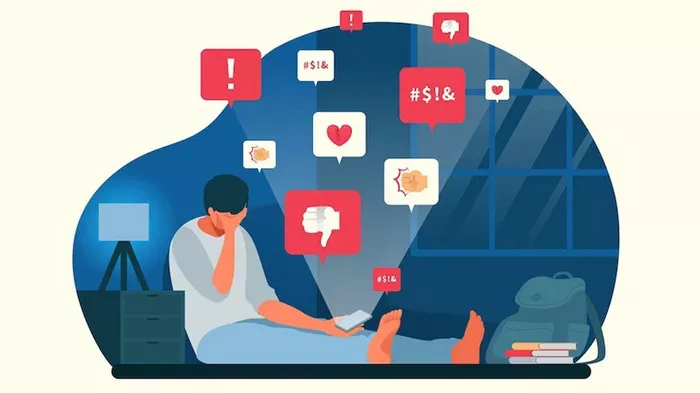Psychotherapy stands on the brink of a technological revolution that promises to enhance treatment efficacy, expand access, and personalize mental health care in unprecedented ways. From virtual reality exposure therapy to AI-powered progress tracking, these innovations are transforming therapeutic practice while raising important ethical and practical considerations. As these technologies mature, they’re creating new paradigms for understanding and treating psychological distress, potentially democratizing high-quality mental health care across geographic and socioeconomic divides.
Virtual reality (VR) has emerged as one of the most promising tools for enhancing traditional psychotherapy techniques. Initially developed for phobia treatment, VR now assists with PTSD therapy by recreating trauma scenarios in controlled environments where patients can safely process memories. Social anxiety patients practice interactions through virtual avatars, building confidence before real-world application. New applications help with chronic pain management by distracting the brain with immersive environments, while VR meditation programs create deeply relaxing sensory experiences. The technology’s ability to create customized, repeatable scenarios gives therapists unprecedented control over exposure intensity and content. Studies indicate VR-enhanced therapy often produces faster results than traditional methods for specific conditions, though it works best when integrated with human therapeutic guidance rather than as standalone treatment.
Artificial intelligence applications in psychotherapy are developing across several fronts. Natural language processing algorithms can analyze therapy session transcripts to identify subtle linguistic markers of improvement or deterioration, providing objective progress measures. Some systems flag when clients’ speech patterns indicate high suicide risk, serving as an additional safety net. AI chatbots now offer basic cognitive behavioral techniques as an accessible first step for those hesitant about human therapy, though their limitations for complex cases are well-recognized. Machine learning helps match clients with optimal therapeutic approaches based on vast treatment outcome databases, moving beyond the current trial-and-error process. Perhaps most controversially, some researchers are exploring whether AI could eventually simulate therapeutic relationships for underserved populations, though most experts agree technology should augment rather than replace human therapists.
Biometric feedback devices are creating new possibilities for mind-body integration in psychotherapy. Wearables that track heart rate variability, skin conductance, and other physiological markers help clients recognize stress responses in real-time. Neurofeedback systems using EEG headbands train patients to modulate brain activity patterns associated with conditions like ADHD or anxiety. These technologies make abstract psychological concepts tangible, empowering clients with concrete data about their progress. Some therapists combine biometric data with traditional interventions, using physical markers as indicators of when to employ specific coping strategies. While promising, these tools require careful implementation to avoid reducing complex emotional experiences to simplistic physiological metrics.
Digital phenotyping—the use of smartphone data to assess mental health—represents another frontier. Patterns in typing speed, social media usage, GPS movements, and voice characteristics can indicate mood states or symptom flares. Passive monitoring apps alert clinicians to concerning changes between sessions, enabling timely interventions. These methods show particular promise for conditions like bipolar disorder where early symptom detection prevents severe episodes. However, significant privacy concerns accompany continuous personal data collection, requiring robust consent processes and security measures. The therapeutic community continues debating appropriate boundaries for this surveillance-like technology in mental health care.
The gaming industry unexpectedly contributes to psychotherapy innovation through serious games designed for mental health. These interactive programs teach coping skills through engaging narratives and reward systems, particularly effective for younger populations. Some games simulate social situations to practice interpersonal skills, while others use biofeedback controllers to train relaxation techniques. When well-designed, these tools extend therapeutic learning beyond session walls, though critics caution against over-reliance on gamification for serious mental health concerns.
Emerging neurotechnologies may soon push psychotherapy’s boundaries further. Transcranial magnetic stimulation (TMS), once limited to treatment-resistant depression, is being adapted to enhance the neuroplastic effects of talk therapy. Experimental protocols combine psychotherapy with psychedelic-assisted treatments under careful medical supervision, showing remarkable results for conditions like PTSD and end-of-life anxiety. While these approaches remain restricted to research settings, they hint at future possibilities for directly modulating the brain’s healing capacity during therapeutic work.
Implementation challenges temper enthusiasm about these technological advances. Many clinicians lack training to integrate high-tech tools into traditional practice. Reimbursement systems often don’t cover innovative methods, limiting accessibility. The digital divide means marginalized populations may miss out on tech-based therapy improvements. Perhaps most fundamentally, these technologies risk privileging measurable, symptom-focused outcomes over psychotherapy’s traditional emphasis on meaning, relationships, and personal growth.
As psychotherapy enters this technological renaissance, the field must balance innovation with preservation of its core healing elements. The most effective future likely combines technological precision with human wisdom—using tools to enhance, not replace, the therapeutic relationship that remains central to meaningful change. This synthesis could ultimately fulfill psychotherapy’s promise: making effective mental health care both scientifically sophisticated and deeply human, available to all who need it regardless of circumstance.


